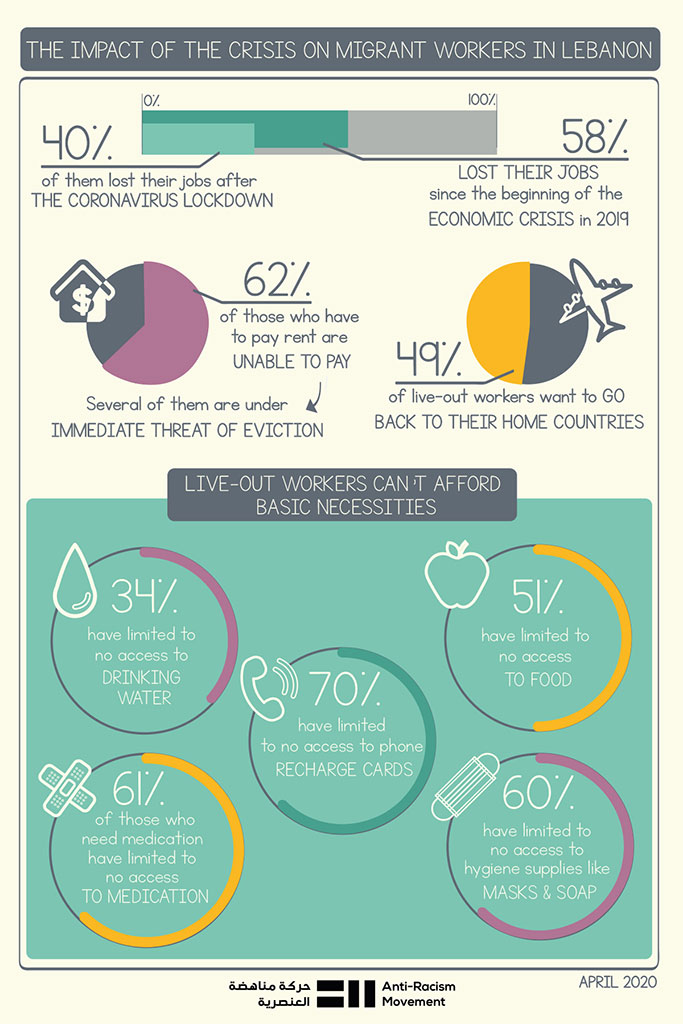The Impact of the Economic Crisis and Coronavirus Lockdown on Migrant Workers
April 26, 2020
General Advocacy.
Since the beginning of the economic crisis in Lebanon in 2019, migrant workers have suffered severe financial losses due to being fired, reduction in salaries, and rapid devaluation of the local currency. The lockdown due to the COVID-19 pandemic is exacerbating these losses. As a result, most migrants are being pushed into severe poverty, unable to secure their most basic needs, including food and shelter.
The Anti-Racism Movement (ARM) conducted a rapid needs assessment in mid-April 2020 to survey 356 migrant workers by phone and assess the magnitude of the crisis. The sample consists of around 50% women and 50% men, mostly of Ethiopian and Sundanese nationality. Out of the 356 people surveyed, 31% are live-in domestic workers and 52% are live-out workers, including domestic workers, construction workers, concierge, chefs at restaurants, and other occupations that don’t require them to live in their employers’ houses.[1]
With the majority of the people surveyed being live-out workers, this sample is not representative of the migrant communities in Lebanon. Although they bear the brunt of the crisis now, live-out workers usually have greater freedom of movement, greater flexibility with their time, as well as greater access to networks than live-in migrant domestic workers. Furthermore, out of the 500 migrant workers called, 144 were unreachable by phone, which is likely due to their inability to afford recharge cards. This means that the results below, which are already alarming in themselves, actually mask a much bleaker reality.
The situation is worsening by the day. Many of those who reported being able to access food at the time of the survey, shared that they are eating only one meal per day. All of those who lost their jobs reported that they will soon lose their ability to pay rent, or secure food. Many members who were receiving help from their friends or family will soon lose this source of support. All migrant workers in Lebanon are also currently unable to send money to their families back home, which extends the same repercussions of the crises in Lebanon to their families abroad.
The results presented below should therefore be understood as the minimum impact of the crises on migrant workers in Lebanon, rather than an accurate representation of the needs on the ground.

[1] The remaining 17% have been unemployed for months, and could not be categorized as live-in or live-out workers.
Tags :
Coronavirus,Economic Crisis,Infographic,Lebanon,Migrant Workers
Share This :
Related Posts
No Herd Immunity Without Vaccines for Migrant WorkersMarch 18, 2021
Homelessness among Migrant Workers on the RiseSeptember 2, 2020
Beirut Blast Solidarity Tainted with RacismAugust 13, 2020
Have Any Questions?
To inquire about this statement and the context, email us or fill the form.